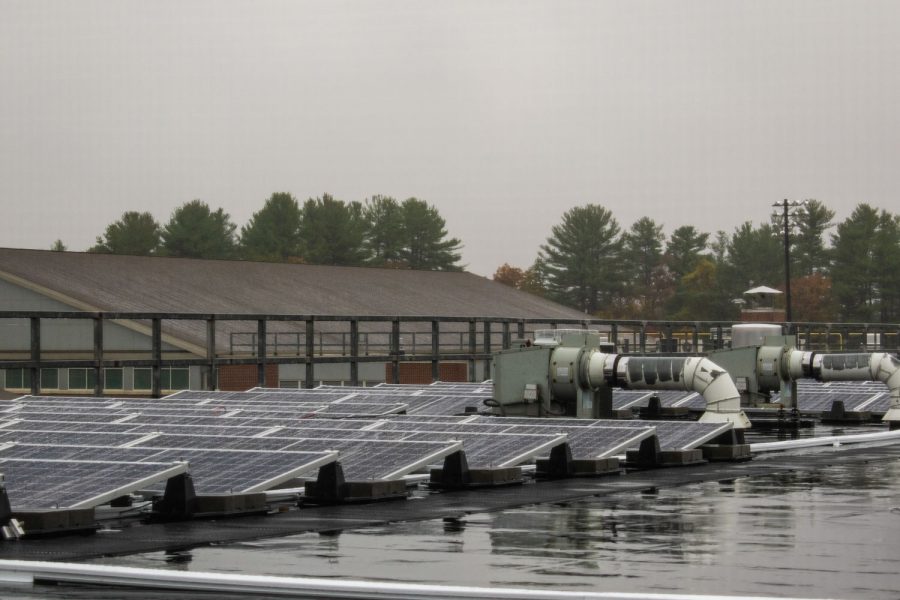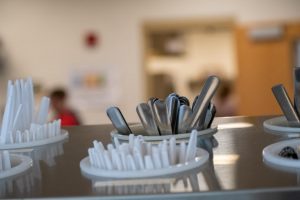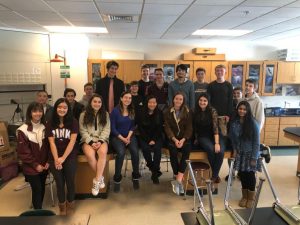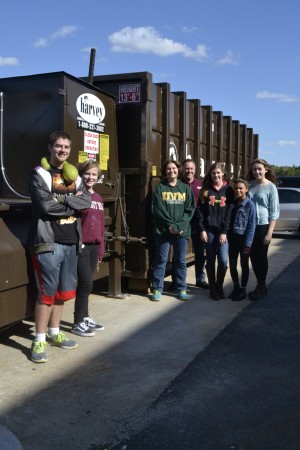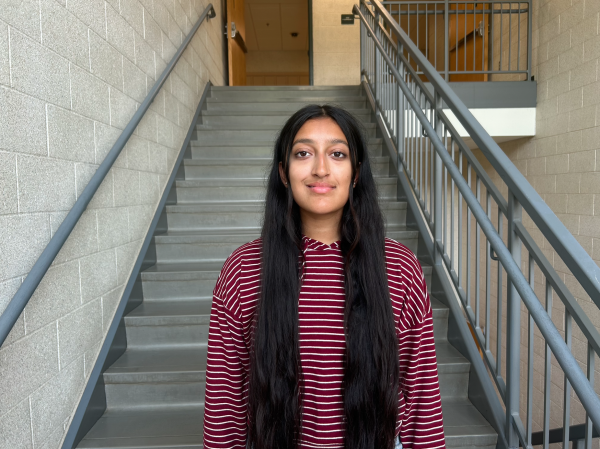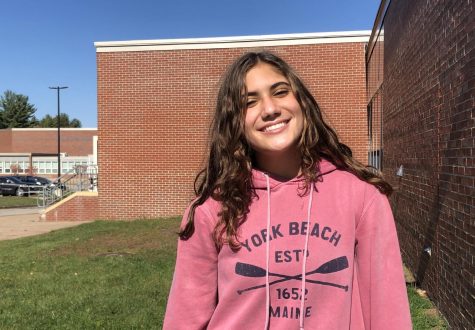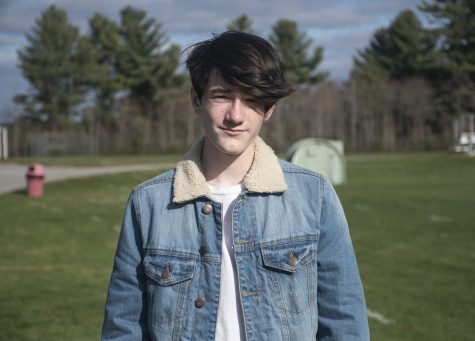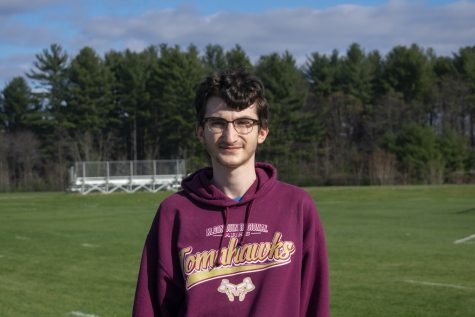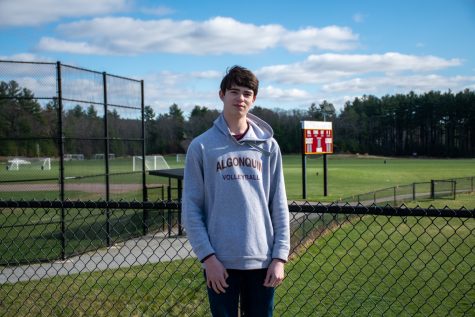ARHS combats climate change through energy conservation projects
Solar panels were installed at the beginning of the 2020-2021 school year in an effort to save money on electricity and address energy conservation at Algonquin.
January 31, 2021
Although many students believe otherwise, Algonquin’s staff has pursued many projects to address energy conservation to reduce the school’s carbon footprint as well as save money, while clubs at Algonquin raise awareness.
Past projects include adding variable frequency drives to the AC motors, switching to LED lights in the building and parking lots, weatherizing the doors and most recently, adding solar panels. According to Facilities Director Mike Gorman, all of these projects have decreased ARHS’s carbon footprint after some time. Gorman said the variable drive project slows down the motors and saves the school $19,000 a year.
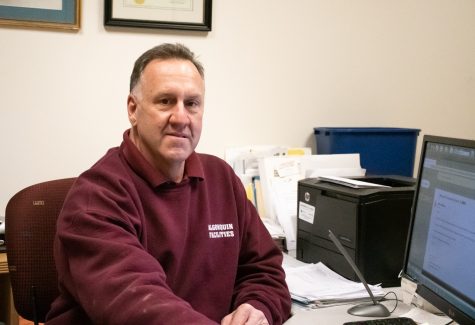
Gorman is responsible for making sure everything runs efficiently and safely with supplies and equipment on all of the school grounds. He also runs all of the projects involving school facilities, including those regarding energy conservation.
According to Gorman, Algonquin has been implementing energy conservation projects for the past 10 years.
“Everything we can save[money and energy], one helps the environment and two helps our school,” Gorman said. “Every dollar wasted comes out of your education.”
According to a Harbinger survey of 251 students conducted through Google Forms from Dec. 7 to Dec. 12, 92 percent believe Algonquin is not doing a lot for climate change. However, starting in 2009, Algonquin’s facilities team has planned and carried out energy conservation projects.
Students are also trying to help fight climate change. Senior Ben Westphal started the Green Earth Club his sophomore year to spread awareness and educate members of the Northborough-Southborough community about climate change.
“The environment is something that we can have and something we can lose so easily; we’ve been losing it because people aren’t realizing how important it actually is,” Westphal said.
Senior Macey Poitras-Cote joined the club hoping to do her part in solving climate change and to encourage others to also do their part.
“We’re going to have children and grandchildren, and they’re going to have to deal with the problems that we created or the people before us created, so it’s our job to let them grow up in the beautiful world we have now,” Poitras-Cote said.
Poitras-Cote’s goal as a member of the Green Earth Club is to spread awareness about climate change to her fellow peers.
“I think it all starts on a personal level for everybody to start doing their part,” Poitras-Cote said. “Then the big businesses and companies will see what consumers want, and then they’ll change.”
Poitras-Cote believes Algonquin could eliminate single-use plastic and switch to reusable or compostable materials. Before the start of COVID-19, Poitras-Cote felt like Northborough-Southborough, as a community, was making progress by banning plastic bags.
Science teacher and adviser for the Green Earth Club Chrissy Connolly believes if more people were better educated about climate change, fighting it would be much easier. She makes sure to teach her students about climate change in every one of her classes.
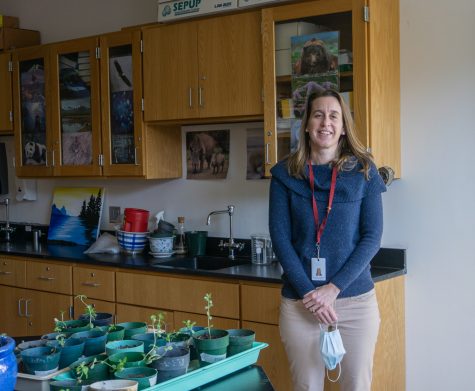
“What led me to ultimately become a teacher was that I felt like if people knew this information, maybe we would act differently and try to fight it and other environmental issues,” Connolly said.
Connolly teaches an entire chapter about climate change in her AP Environmental classes and constantly refers to it in her Biology classes. She helps her students understand various environmental topics, including alternative energy use.
“A big con of alternative energy is the upfront cost,” Connolly said. “They cost a lot of money to buy a wind turbine or solar panels, but as you use them, they end up offsetting that original cost.”
Connolly thinks the pros of switching to renewable energy outweigh the cons. According to Connolly, switching to renewable energy would mean no burning of fossil fuels, no drilling or mining and ultimately no greenhouse gasses, and she asserts that renewable energy is generally less expensive and much safer.
Connolly tells her students they are role models for their peers, and if they start to do something environmentally friendly, their peers would start to do the same.
“If you start using a reusable water bottle and that’s cool, the other kids will too,” Connolly said.
After returning to Algonquin after over 10 years of working in another district, Principal Sean Bevan believes the school could be doing more to take part in the fight against climate change.
“I think right now our priority is more short term, and climate change is more of a long term endeavor,” Bevan said.
Since the start of COVID-19, according to Bevan, Algonquin has been focused more on the students’ safety and getting a better handle on the pandemic than climate change.
Solar panels were a new addition to the school at the beginning of the 2020-2021 school year.
“The installation required some investment up front, but at some point in the near future, we will save enough money on our electricity that all future savings are just net gain,” Bevan said.
Even though the upfront cost of the solar panels was high, Bevan knows they will end up saving the school more money than originally paid and will help make the school more environmentally-friendly.
While the facilities team continues with larger changes and longer-term investments, Connolly believes individual actions can result in large collective change.
“Hopefully the Algonquin students are seeing that you don’t have to make major changes if we all make some smaller changes,” Connolly said. “We can have a huge impact.”



